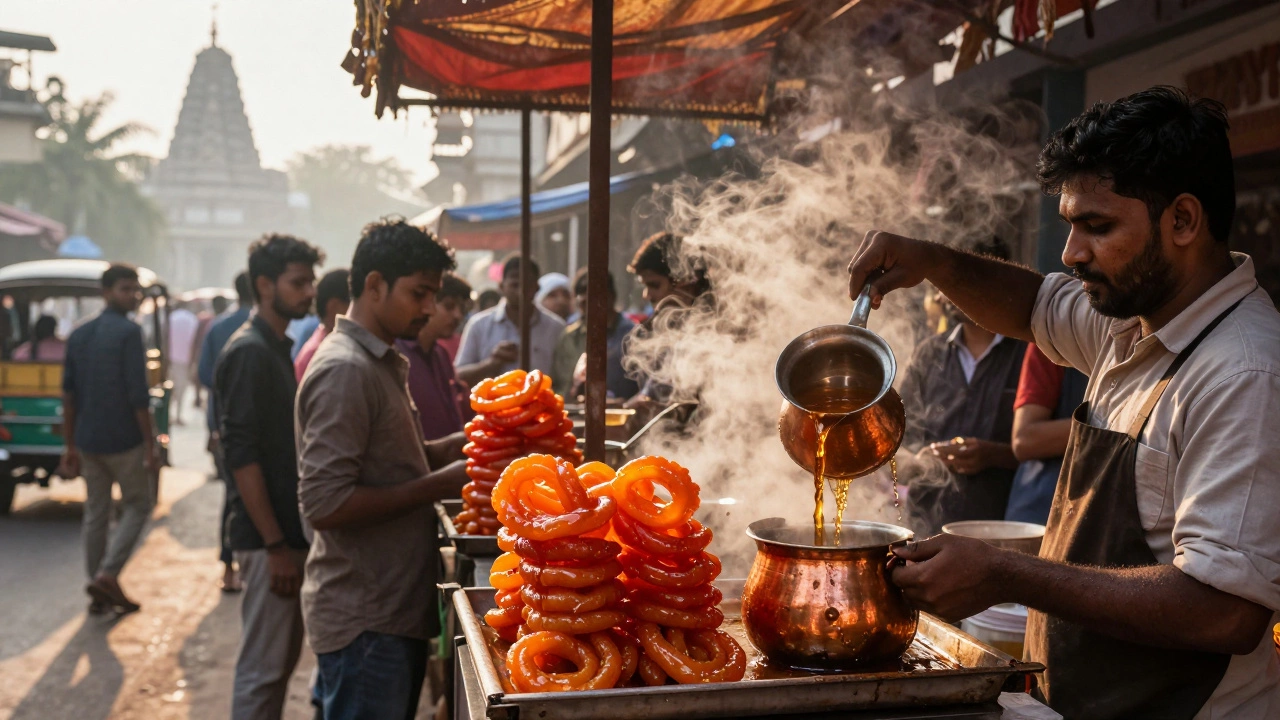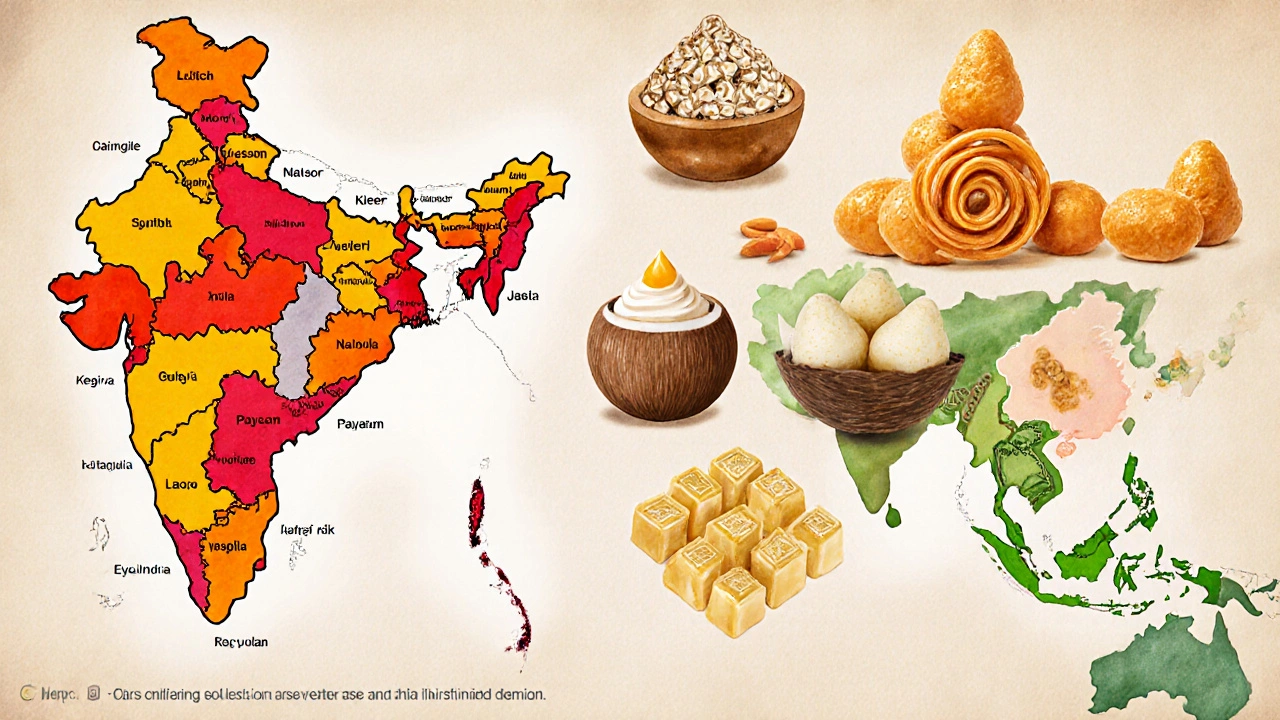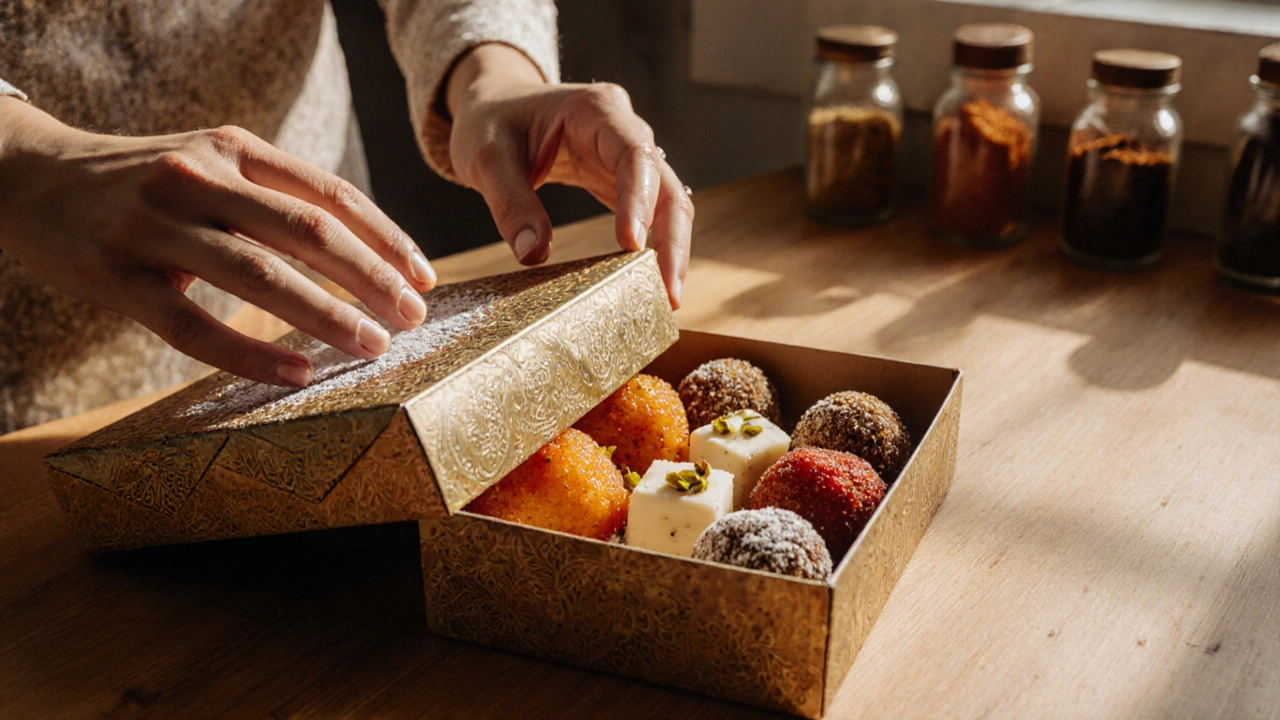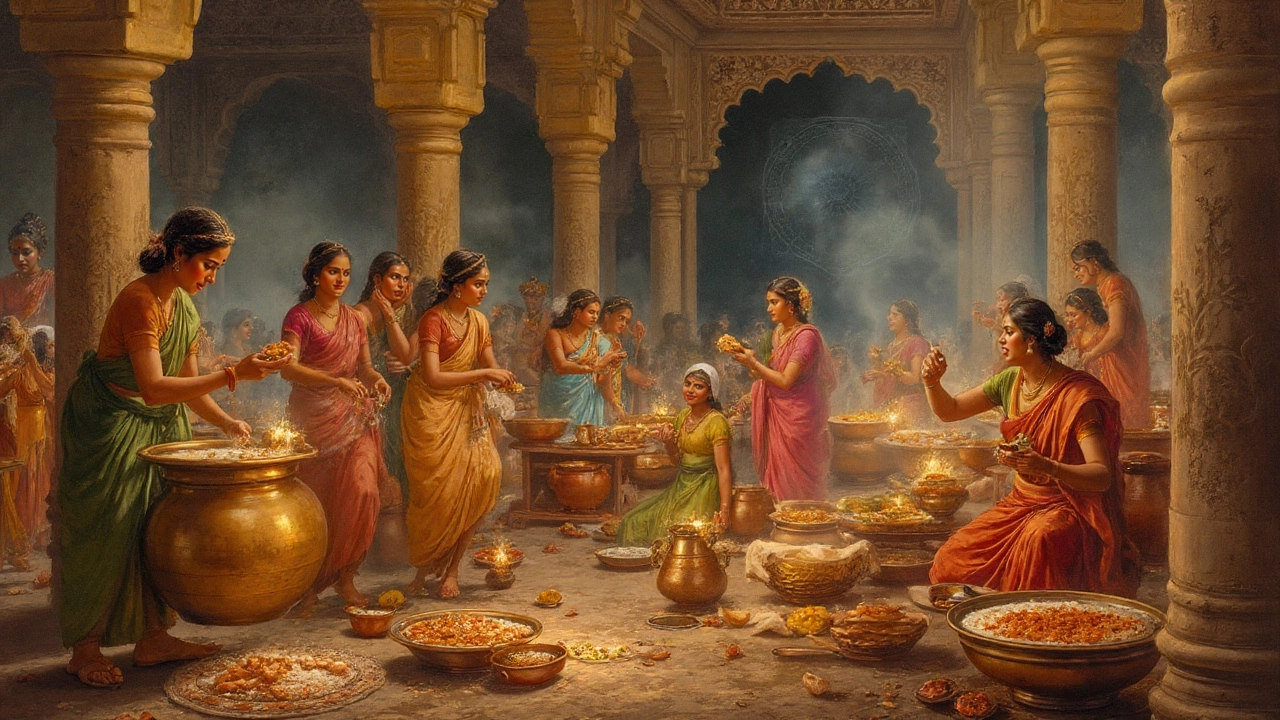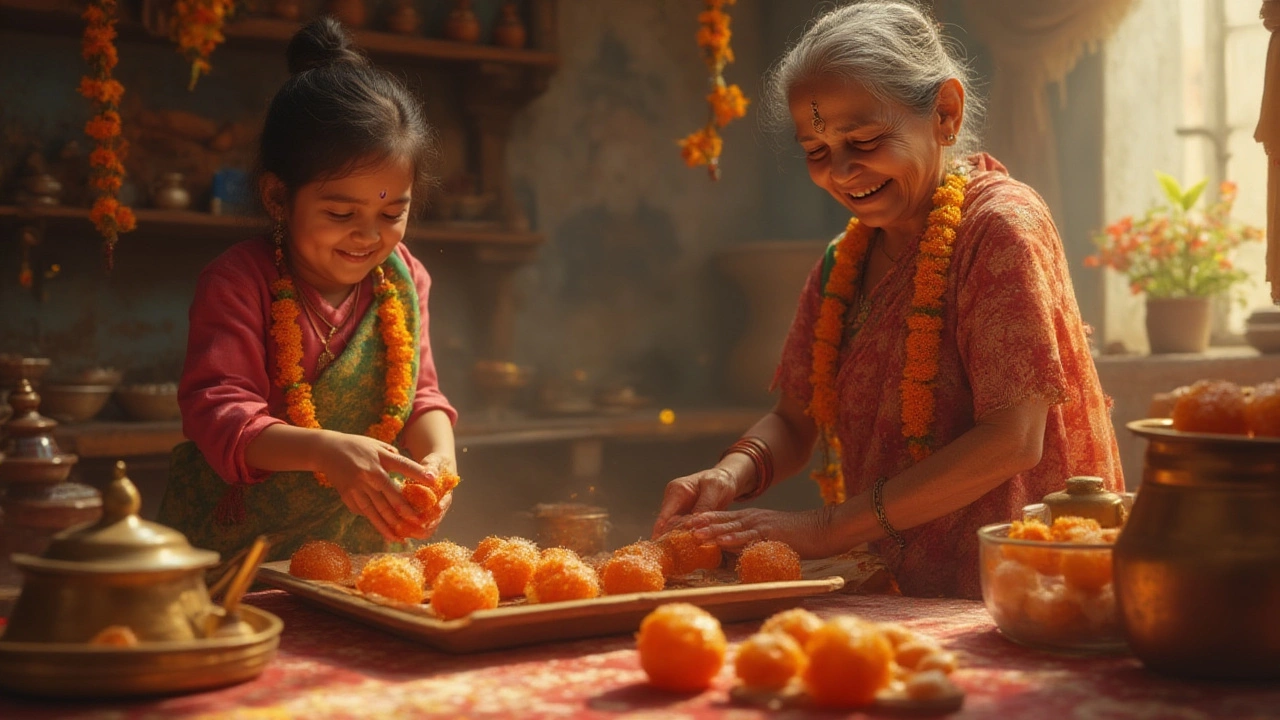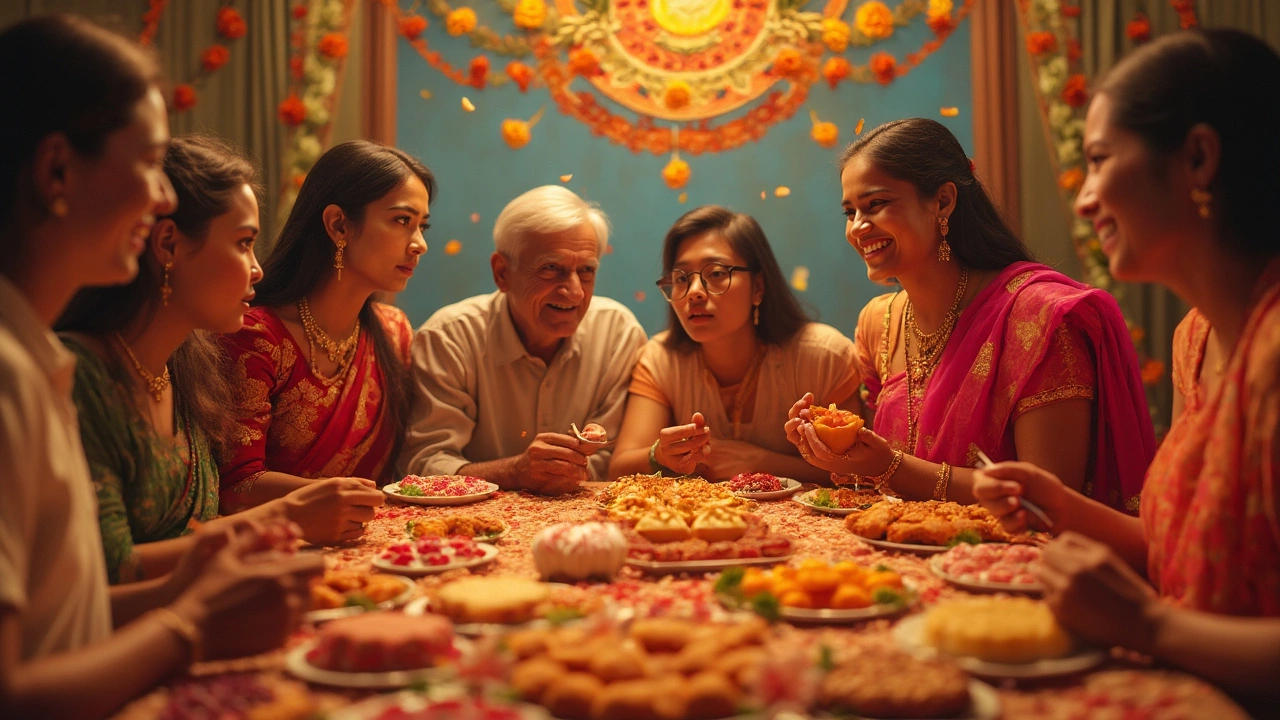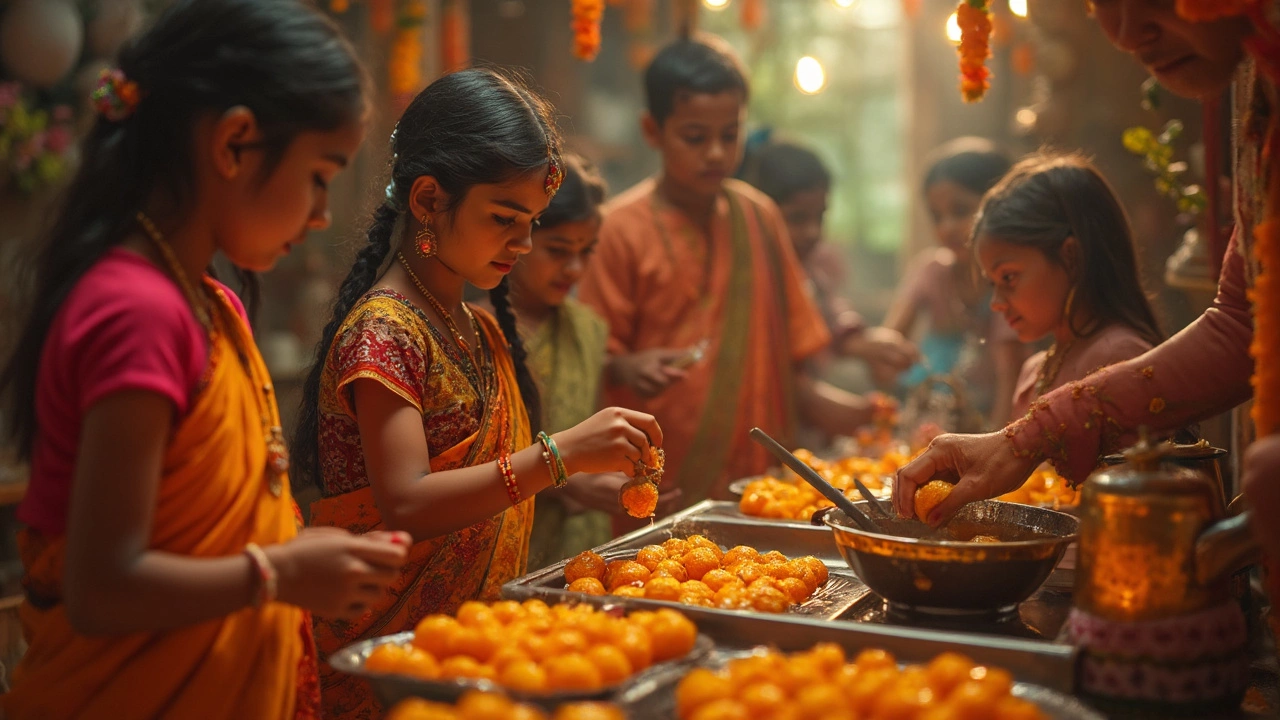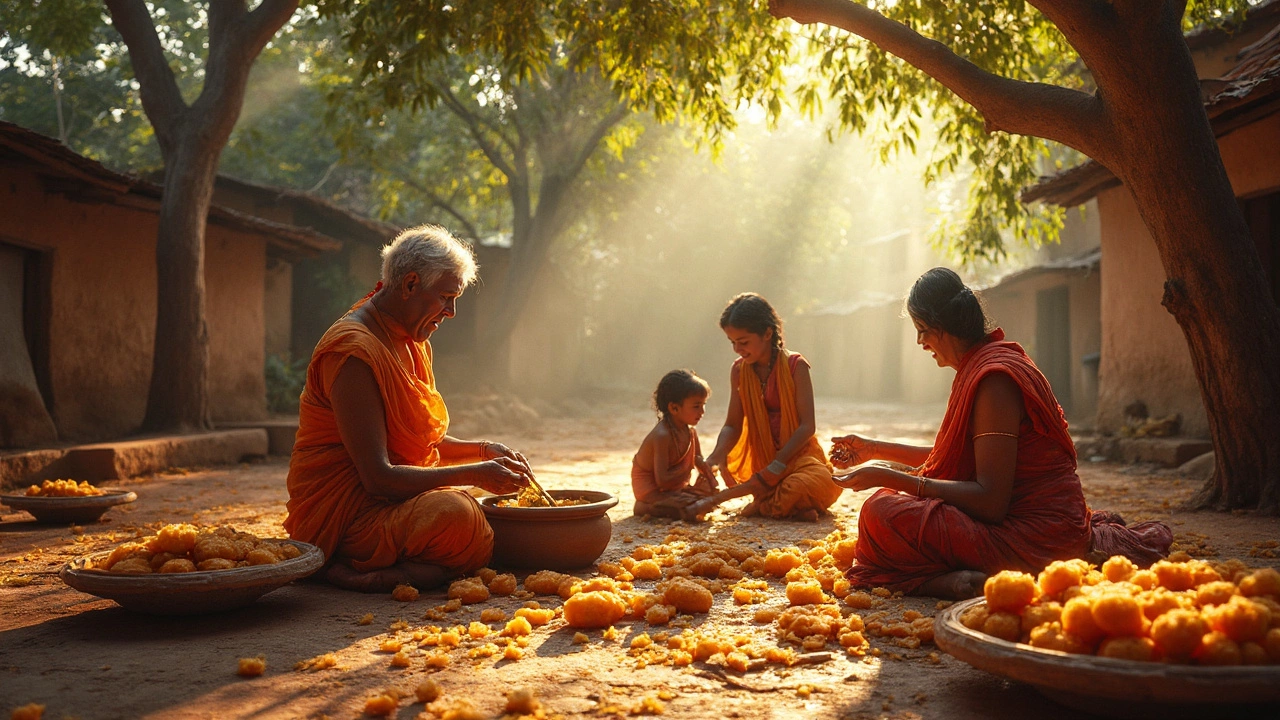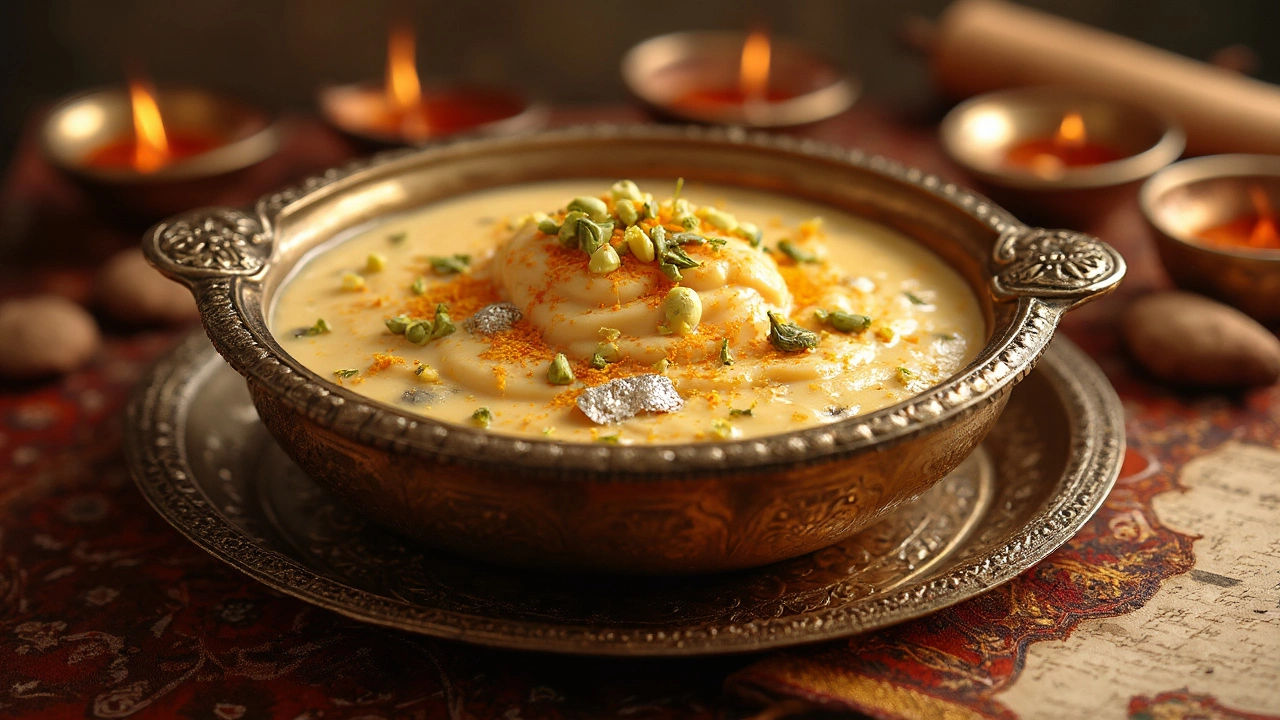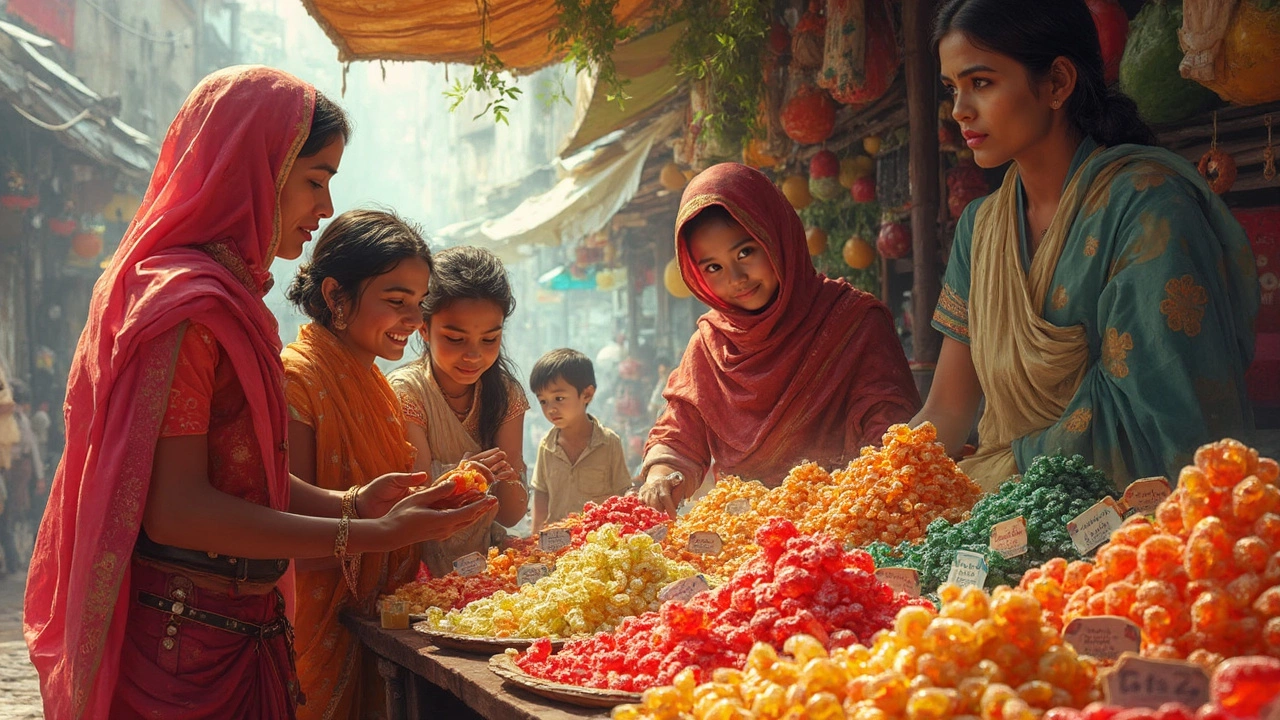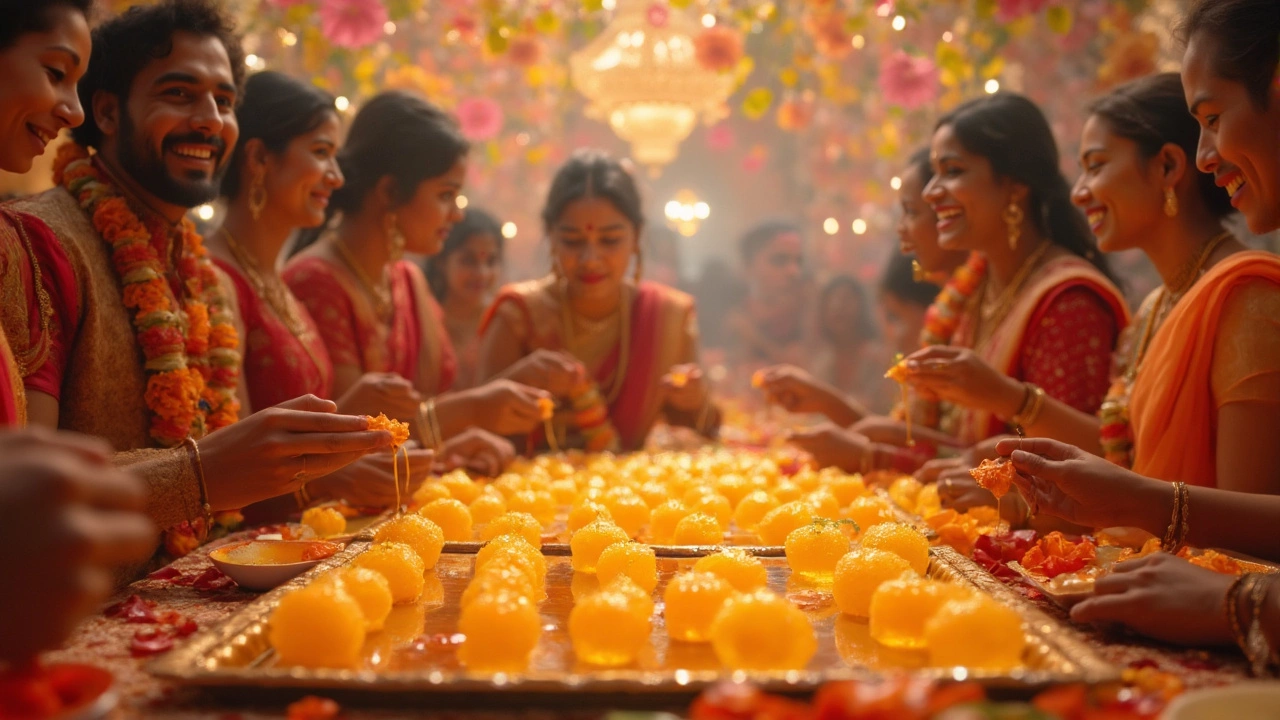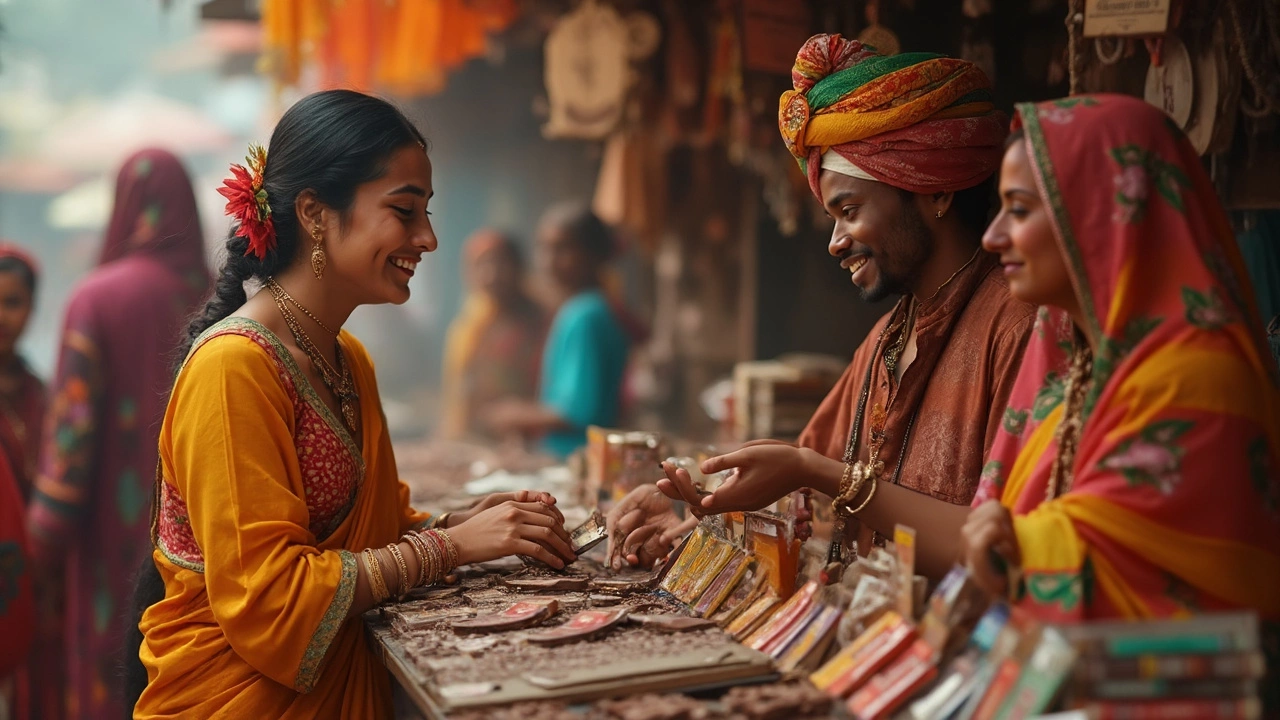Indian Sweets Recipes – Classic Mithai, Gulab Jamun & More
If you’ve ever wondered why Indian desserts get guests buzzing, you’re in the right place. Here you’ll find simple, step‑by‑step recipes that bring the magic of mithai straight to your kitchen. No fancy equipment, just everyday items and a pinch of patience.
Why Indian sweets stand out
First off, Indian sweets rely on a handful of key ingredients – sugar, milk solids, ghee, and aromatic spices. That combo creates flavors you can’t find in Western desserts. Take gulab jamun, for example. Soft milk‑based balls soaked in rose‑kissed syrup, it’s the go‑to treat for festivals and family gatherings. Or think about kheer, a rice pudding that’s been on tables for centuries, thanks to its comforting mix of rice, milk, and cardamom.
What makes these sweets special isn’t just taste; it’s the story behind each bite. Many recipes have roots in ancient royal kitchens or temple offerings, so when you whip up a batch, you’re also preserving a piece of history. And the best part? Most of these recipes can be tweaked for health‑conscious cooks – swap some ghee for oil, use low‑fat milk, or add a dash of jaggery instead of refined sugar.
Get started: Easy recipes for beginners
Ready to try? Here are three fool‑proof recipes you can master this week.
1. Quick Gulab Jamun – Mix store‑bought khoya powder with a little flour, shape into small balls, and fry until golden. Simmer in a syrup made from sugar, water, a pinch of cardamom, and a few drops of rose water. Let the balls soak for at least 15 minutes before serving.
2. Simple Kheer – Cook rice in milk on low heat, stirring often to prevent stickiness. Add sugar, cardamom, and a handful of chopped nuts. Finish with a splash of saffron for color and aroma. Serve warm or chilled.
3. Easy Besan Ladoo – Roast gram flour (besan) in ghee until it smells nutty. Mix in powdered sugar and cardamom, then roll into bite‑size balls. These can be stored in an airtight container for a week.
Each recipe includes a short tip box you’ll find in the post preview – like “use a slotted spoon for frying gulab jamun so they stay round” or “add a teaspoon of rose water at the end of kheer for extra fragrance.” These nuggets save you time and make the results look pro.
Beyond the recipes, our category page groups posts by popularity, history, and special diets. If you’re curious about the oldest Indian sweets, check out the article on ancient mithai. Want to know which sweet people love the most worldwide? The “Gulab Jamun rules” piece has the stats and fun facts.
So grab a pot, a spoon, and maybe a friend to help stir. Indian sweets are all about sharing – the more you make, the more reasons you have to bring people together. Dive into the list below, pick a recipe, and let the kitchen fill with sweet aromas.
What Is India's Best Dessert? The Sweet That Rules Every Celebration
Jalebi is India's most beloved dessert - crispy, syrup-soaked, and served hot at every celebration. Discover why this sweet beats gulab jamun, rasgulla, and all others in popularity, tradition, and emotional connection.
Popular Indian Desserts: A Sweet Journey Across India
Explore the most beloved Indian desserts, learn their regional roots, key ingredients, simple recipes, and when they’re traditionally served.
Do Indian Sweets Go Bad? Shelf Life, Storage & Spoilage Guide
Learn how long different Indian sweets last, proper storage methods, and signs of spoilage so you can enjoy fresh mithai safely.
Ancient Indian Sweets: The Fascinating Origins of India's Oldest Mithai
Travel back centuries to discover the oldest sweet in India, its flavorful history, and why this dessert still makes hearts melt today.
India's Most Popular Sweet: Why Gulab Jamun Rules Every Occasion
What’s the one Indian sweet everyone agrees on? Discover why gulab jamun steals the spotlight—history, recipes, festival facts, and secret tips in one read.
What Nationality Eats the Most Sweets? Surprising Truths and Indian Sweets Inspiration
Who tops the charts in eating sweets, and what makes them love sugar so much? This article compares global sweets consumption with a special look at Indian dessert culture. You'll discover quirky facts about national sugar habits, how Indians fit into the picture, and why Indian mithai stands out. Find out which countries’ people have the biggest sweet tooth and get quick tips for making your treats a bit healthier. If you've ever wondered why some folks reach for laddoos while others grab chocolate, this one’s for you.
Most Popular Indian Sweet: Why Gulab Jamun Steals the Show
Gulab Jamun stands tall as the favorite Indian sweet, loved by kids and adults everywhere. This article unpacks what makes Gulab Jamun the top pick, shares quick tips for getting it right at home, and uncovers fun facts you probably haven’t heard. Get simple tricks for perfect texture and deep flavor—no pastry chef skills required. From Indian festivals to family dinners, find out why everyone’s obsessed. You’ll even discover shortcuts for beginners or busy families.
Oldest Candy in India: Tracing the Sweet Roots of Indian Sweets
Ever wondered what counts as the oldest candy in India? This article digs into the ancient roots of Indian sweets, spotlighting jaggery-based treats and early sugarcraft. It unearths the story behind legendary sweets, explores why they've survived for centuries, and breaks down how these early candies were made at home. Expect taste, nostalgia, and a few surprising facts about India’s enduring sweet traditions.
Oldest Indian Dessert: Unwrapping the History of Kheer
Curious about the oldest dessert in India? This article digs into the rich history and surprising origins of kheer, the timeless Indian sweet rice pudding. Discover what makes kheer unique, its journey across the centuries, and how it shaped Indian food culture. Plus, get helpful tips if you want to try making this iconic treat at home. Explore interesting facts that connect kheer to ancient festivals, rituals, and royal kitchens.
Why Can't Muslims Eat Gummies? Exploring the Reasons Behind It
Discover why many Muslims avoid eating gummies and the religious concerns surrounding gelatin. Learn how these chewy treats might contain ingredients that conflict with Islamic dietary laws. Get tips on identifying halal gummies and how manufacturers cater to the Muslim market. Find out what makes a gummy halal and the alternative ingredients used.
Exploring India's Love for a Non-Indian Dessert
Gulab Jamun is a beloved dessert in India, surprising many with its non-Indian origins. Originally a Persian delight, it became a staple at Indian celebrations and festivities. Learn about its journey to becoming a cherished Indian sweet, how it integrates into Indian culture, and tips on making it at home.
Why Can't Some Muslims Eat Chocolate?
For Muslims, the permissibility of eating chocolate involves understanding Islamic dietary laws. While many chocolates are considered halal, certain ingredients or production processes may make them haram. Recognizing which types of chocolate align with religious requirements is essential. This article explores the common reasons some chocolates may not be suitable for Muslims and offers tips for ensuring chocolate-based treats are halal.
